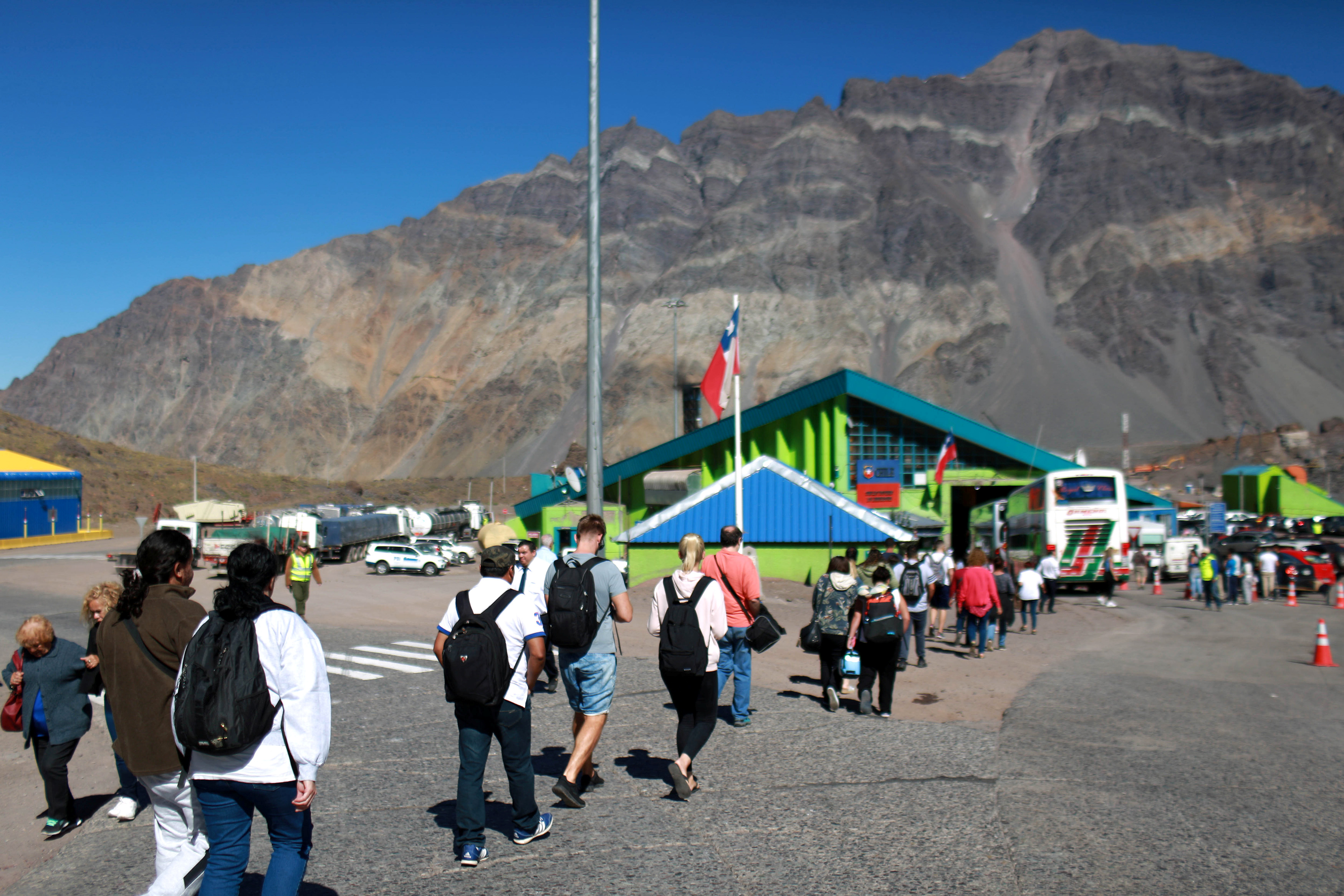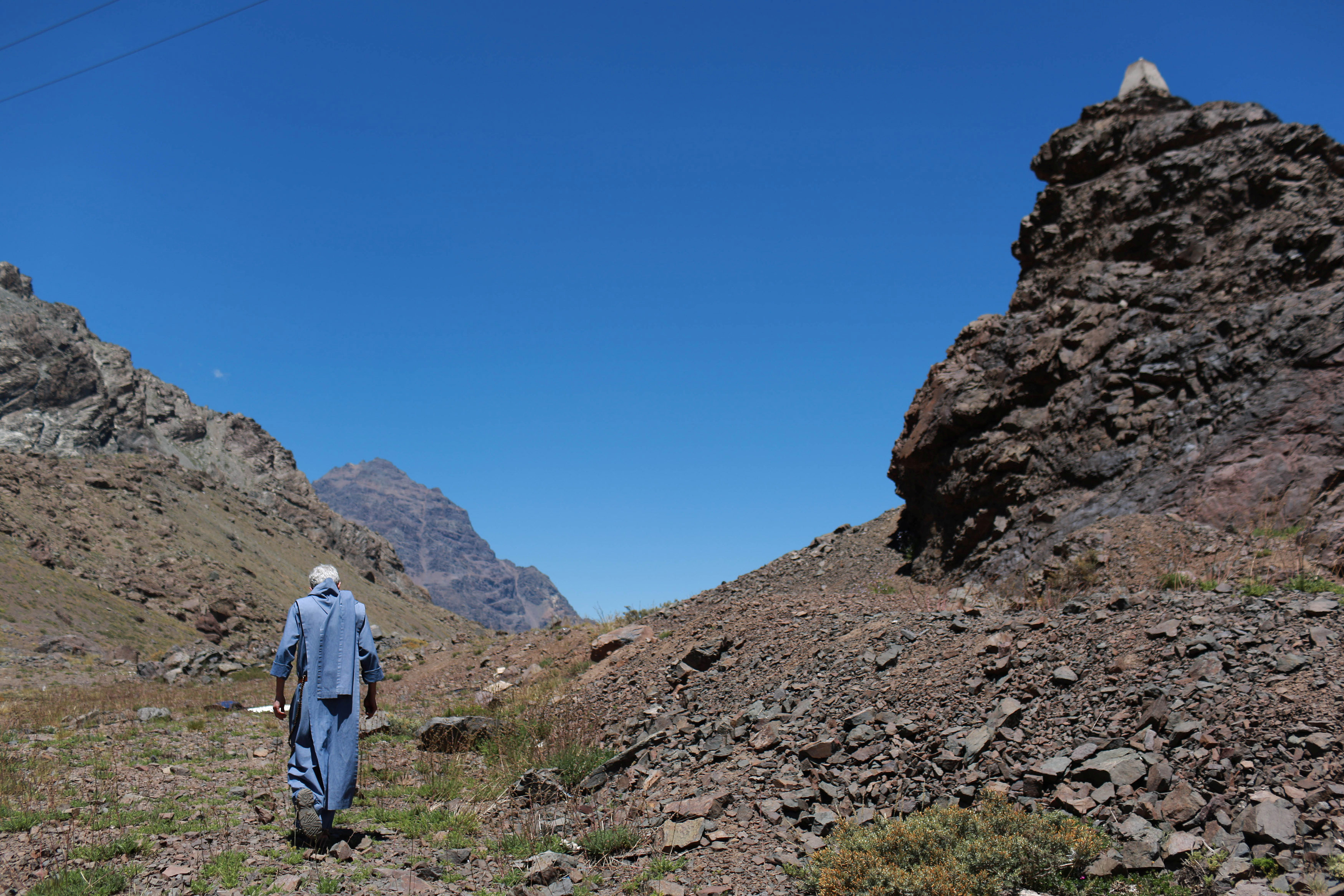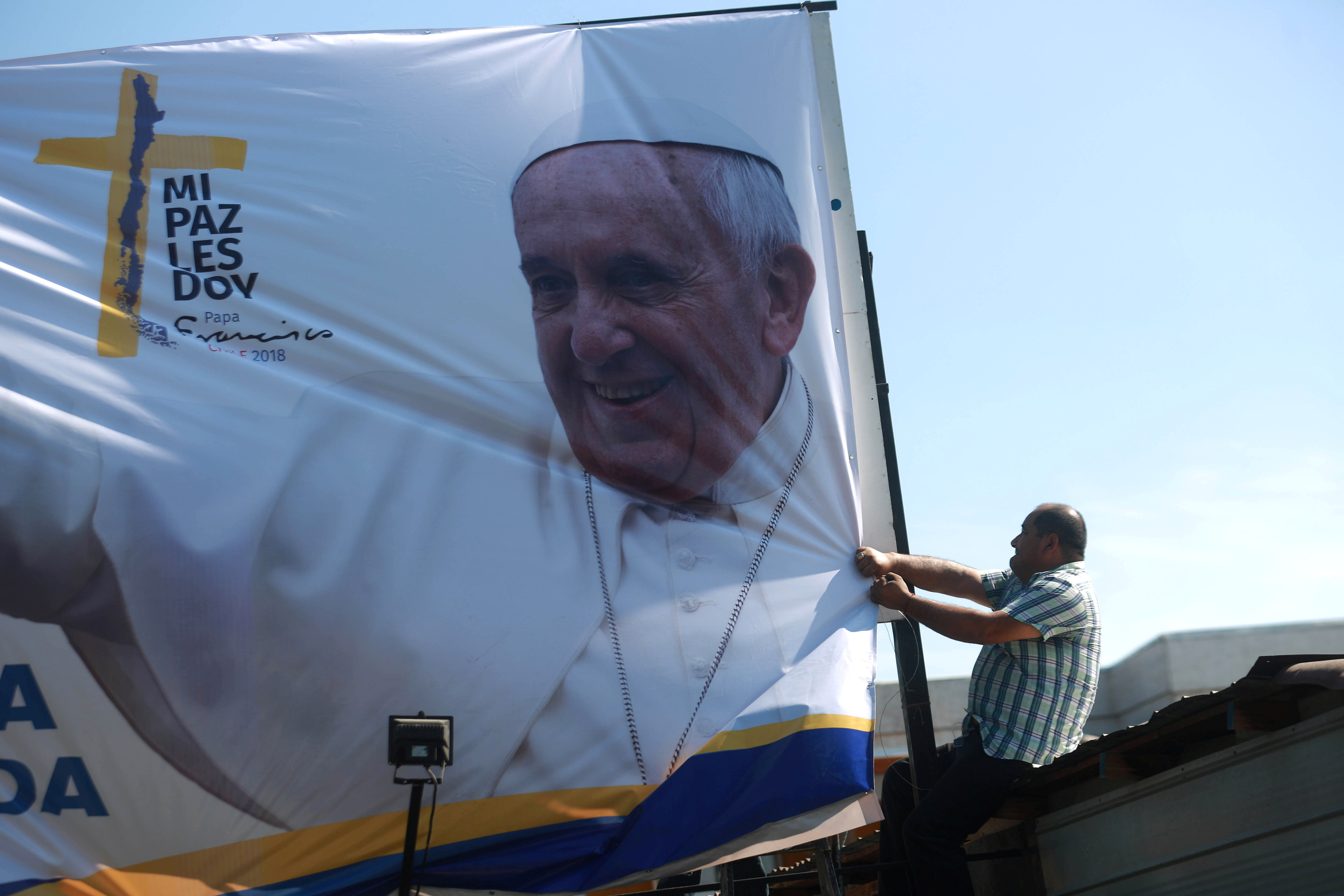When Pope Francis embarks on his fourth visit to South America, he will face the enormous task of restoring trust and encouraging healing after scandals in both countries left many wounded and angry at the Catholic Church.
Pope Francis planned the trip Jan. 15-21 to Chile and Peru as an opportunity to take a message of hope and comfort to people on the margins of society, particularly the indigenous people.
However, the challenges facing the Church in both countries will make this visit different compared to his previous trips to the continent.
In Peru, young members of Sodalitium Christianae Vitae, a Catholic movement, were subjected to psychological and sexual abuse by group leaders, including the founder, Luis Fernando Figari. An internal Sodalitium investigation confirmed the abuse of children, teens and young adult members of the movement. Less than a week before the Pope's visit to Peru, the Vatican's Congregation for Institutes of Consecrated Life and Societies of Apostolic Life named a Colombian bishop to be the trustee of the scandal-plagued movement.
In addition, despite his actions to address the issue of sexual abuse in Peru, the pope's decision to appoint a bishop accused of turning a blind eye to abuse drew outrage in Chile. Greg Burke, director of the Vatican press office, told reporters Jan. 11 that Pope Francis' formal schedule for Chile and Peru does not include a meeting with sexual abuse victims or with the people still protesting the appointment of Bishop Juan Barrosas to head the Diocese of Osorno. Sexual abuse is "clearly an important theme," Burke said, adding "the best meetings are private meetings."
The protests against the Pope's appointment of Bishop Barros gained steam when a video of Pope Francis defending the appointment was published in September 2015 by the Chilean news channel, Ahora Noticias. Filmed during a general audience a few months earlier, the video showed the Pope telling a group of Chilean pilgrims that Catholics protesting the appointment were "judging a bishop without any proof".
"Think with your head; don't let yourself be led by all the lefties who are the ones that started all of this," the Pope said. "Yes, Osorno is suffering but for being foolish because it doesn't open its heart to what God says and allows itself to be led by all this silliness that all those people say."
Many were outraged by the Pope's assessment of the situation, including several of Father Karadima's victims, who have organised an event to coincide with Pope Francis' arrival in Chile.
The conference, titled "Sexual Abuse in an Ecclesiastical Context", is sponsored by the Foundation for Trust and will feature several notable speakers, including Peter Saunders, who resigned recently as a member of the Pontifical Commission for the Protection of Minors.
"The fact that the Pope is coming and we are having this seminar is because many people are coming to show their commitment to the rights of children as well as their anger at the lack of reaction and the mistaken words the Pope gave," Jose Andres Murillo, director of the foundation, who suffered abuse at the hands of Father Karadima, said in an interview with Chilean news website, El Mostrador.
Protesters from the Diocese of Osorno are also expected to be in Santiago, calling on the pope to remove Bishop Barros.
Meanwhile, in an open letter published on Jesuit news blog Reflexion y Liberacion, a group of Chilean students said they hoped Pope Francis' visit would bring about true change "not just in our holy and sinful church but also the world".
"We hope that you will be courageous, that you give a face to the invisible men and women of Chile, that you confront the true reality of the country and not allow yourself to be hoodwinked by the lies sold by the business community, political authorities and even many of our ecclesiastical authorities," the students wrote.
Juan Carlos Claret Pool, a spokesman for the Organisation of Laymen and Laywomen of Osorno, told Crux that the group is planning on being in Santiago protesting: “We will focus on the path of the popemobile, with the help of Peter Saunders, [former] member of the papal commission; of Alberto Athie, who uncovered the case of Maciel; and Pedro Salinas, who revealed the case of the Sodalites in Peru.”
Saunders, an abuse survivor himself, was put on a leave of absence by the commission, and he announced his resignation from the body in mid-December, a few days before his three-year term was scheduled to end.
Pope Francis himself will be hoping the controversies over the sex abuse scandals do not overshadow his attempts to highlight issues of concern to the indigenous peoples, as well as around poverty and climate change.
Regarding Peru, which he will visit from 18 – 21 January, Illari Aragon, Peru Programme Officer for the Catholic aid agency CAFOD, told The Tablet: “During Pope Francis’ visit to Peru, CAFOD hopes to hear a message of solidarity and hope for those who are impacted by poverty, inequality, and the negative effects of climate change, as well as those who suffered so much during the armed conflict in Peru.
“We hope that his message also reaches the conscience of people involved in the destruction of Peru’s Amazon, and that he is able to speak out about the rights of indigenous people when he hears first-hand from them about their concerns, struggles and hopes for the future. Peru has a big role to play in the fight against climate change and the protection of the common good, and we hope the message of the Pope’s encyclical Laudato Si’ is heard louder than ever.
“Peru is one the countries that will be most affected by climate change, despite being responsible for just a fraction of global CO2 emissions. But the local communities CAFOD works with in Peru are already feeling the impacts. We are helping them to adapt to the changing climate, and providing support when disasters strike.

“The Pope will visit Trujillo, a coastal region affected by climate change, including flooding resulting from the extreme El Niño event in 2017, when heavy rains, mudslides and landslides destroyed the homes of around 142,000 people and caused incalculable loss in infrastructure and arable land.
“CAFOD supported the local Church to deliver food, water, clothes, nappies, first aid kits and roofing sheets to families. When I visited, people told me that what they lamented most was the loss of their plots of land. Whilst their house could be restored, some crops will take several years to grow before they become productive again. This was a source of income for many people.
“Water supply is also a major issue in Peru. 70 per cent of the population and most of the country’s economic activity are concentrated along the Pacific coast - a desert with high demand for water, yet water supply in Peru is ever diminishing due to glacial melt. Peru’s dependence on agriculture also exacerbates these risks.
“The Peruvian Government has decided to base its economic model on mining, energy and the exploitation of natural resources, yet CAFOD is extremely concerned about the impact this is having on the environment, particularly water, and on the poorest and most marginalised in the country.
“In line with Pope Francis’ message in his encyclical Laudato Si’, CAFOD and our partners are calling for a more inclusive discussion about how we can protect our common home and ensure the economy serves the people and not vice versa. Any development plans in Peru must take into account what local communities want.
“Many Peruvians will be hoping that during his visit Pope Francis shares a message about justice and the true meaning of reconciliation in a post-conflict society. An official ‘humanitarian pardon’ granted by the president Pedro Pablo Kuczynski to Peru’s ex-president Alberto Fujimori on Christmas Eve sparked protests and wide condemnation. The pardon of Fujimori has opened the wounds of thousands of victims and their families who feel betrayed by this move and consider that forgiveness and reconciliation cannot be attained without justice. A message on these issues from a spiritual leader would be welcomed by many in Peru.”
CAFOD has worked in Peru since 1968 with communities and advocacy groups, helping them to address environmental concerns related to mining and press for greater accountability by the government and private sector. CAFOD supports urban development organisations working in shantytowns of Lima with projects focused on disaster risk resilience, climate change education and adaptation work and supporting children’s rights.
On arrival in Peru, Pope Francis will be welcomed by Peru’s President, Pedro Pablo Kuczynski. He will then travel to Puerto Maldonado to meet with the Amazonian people and indigenous leaders. Puerto Maldonado is the capital city of the Madre de Dios, a region known as the country’s "biodiversity capital". The region is at the heart of Peru’s problems relating to illegal gold mining and illegal logging. It is also a focus point for human trafficking and there is very little state presence. He might send a message of concern about the situation of the environment and human life in this forgotten part of the country, as well as about the importance of hearing the voice of those most vulnerable in society. He will also travel to Trujillo, a coastal city which was devastated by the 2017 El Niño event. CAFOD responded to last year’s extreme El Niño flooding on the outskirts of Lima. In this city, Pope Francis will hold masses and carry out visits in the Pope mobile. There will also be a mass in Lima at the end of his trip for over one million people.
The last visit by a pope to Peru was in the 1980s, when John Paul II travelled to Piura, Lima, Cuzco, Ayachucho and the Amazon city of Iquitos in 1985. He met with indigenous leaders there and talked about the importance of protecting their rights and the value of ancestral cultures.
(Pictures: 1: A man arranges a banner with an image of Pope Francis Jan. 11, ahead of the papal visit to Santiago, Chile. The Jan. 15-21 visit to Chile and Peru is planned as an opportunity to take a message of hope and comfort to people on the margins of society, particularly the indigenous people. Credit: CNS photo/Pablo Sanhueza, Reuters.
2: Pilgrims line up to cross the Chilean and Argentine border in Los Andes, Chile, Jan. 11, ahead of the papal visit to Chile. Pope Francis planned the trip Jan. 15-21 to Chile and Peru as an opportunity to bring a message of hope and comfort to people on the margins of society, particularly the indigenous people. Credit: CNS photo/Pablo Sanhueza, Reuters.
3: A priest walks along a mountain in Los Andes, Chile. Credit: CNS photo/Pablo Sanhueza, Reuters.)



 Loading ...
Loading ...